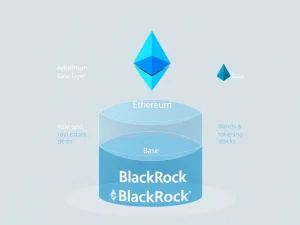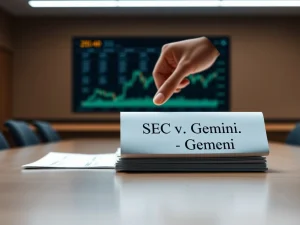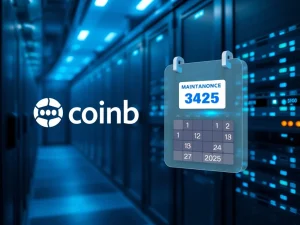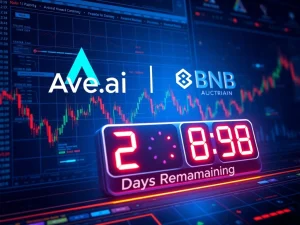Revolutionary Decentralized AI Network Unveiled by Pavel Durov on TON Blockchain
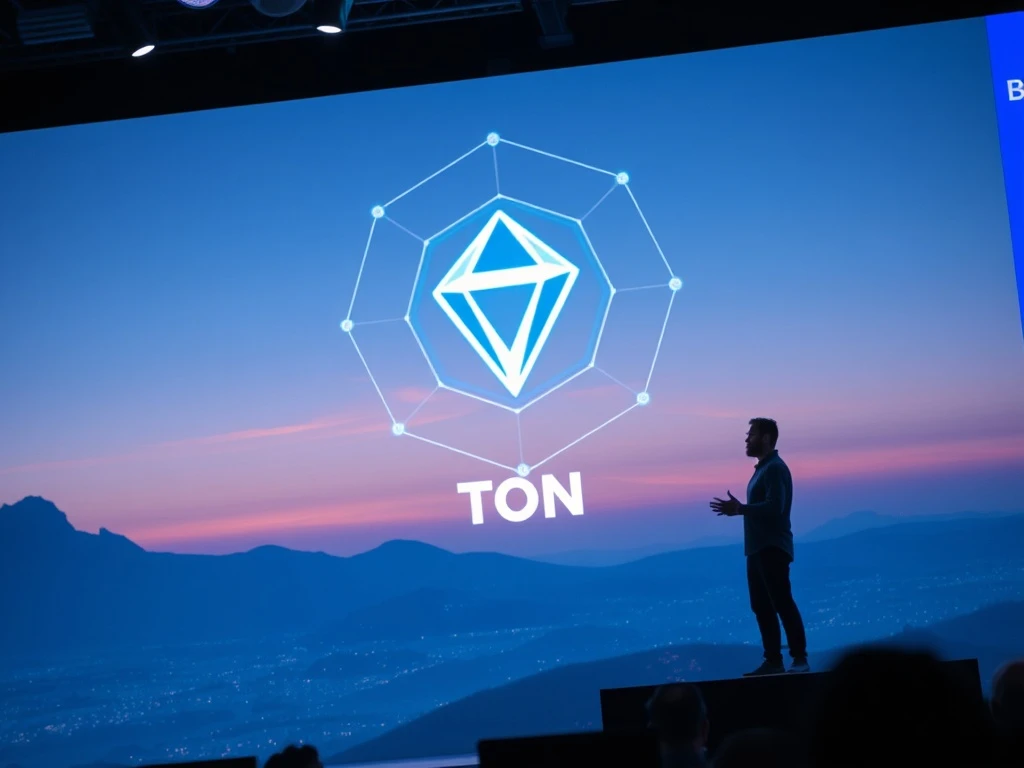
Are you concerned about your data privacy in an increasingly AI-driven world? Many users fear surrendering personal information to centralized providers. Fortunately, a significant shift is underway. **Pavel Durov**, the visionary co-founder of Telegram, has just unveiled a groundbreaking solution. He introduced a new **decentralized AI** network built on the **TON Blockchain**, aiming to redefine how we interact with artificial intelligence.
Pavel Durov’s Vision for Digital Freedom
Vince Quill reported on this significant announcement. Just minutes ago, news broke about Telegram’s Pavel Durov’s latest venture. This new project, named **Cocoon Network**, seeks to offer users access to powerful AI tools. Crucially, it does so without demanding their personal data. This initiative directly addresses a growing concern among internet users. Many worry about the control centralized entities hold over their digital lives.
Durov made this pivotal announcement at the Blockchain Life 2025 forum. The event took place in Abu Dhabi, United Arab Emirates. He presented the Confidential Compute Open Network, or Cocoon. This network is designed to protect user data privacy. It moves away from traditional, centralized AI providers. Therefore, users gain control over their information.
Moreover, Durov outlined a unique incentive structure. Users can contribute their graphics processing unit (GPU) power to the Cocoon Network. In return, they receive **Toncoin (TON)**. Toncoin is the native cryptocurrency of the TON Blockchain. This model incentivizes participation. It also distributes computational power across the network. This approach ensures robust decentralization.
Why Decentralized AI Matters for Data Privacy
Durov emphasized the critical need for decentralized AI. He explained its importance for human freedom. “Why is it important to do something this way as opposed to the centralized way that is sometimes more convenient?” he asked. He then stated, “It is important, my friends, because the world has been moving towards a weird direction. For the last 20 years. We’ve been gradually losing our digital freedoms.” This powerful statement resonated with the audience. It highlighted the core mission of Cocoon Network.
Indeed, decentralizing AI models is a widely discussed topic. Both AI and blockchain developers frequently explore this concept. They acknowledge significant privacy risks associated with centralized systems. Centralized service providers could censor or distort information. This could happen in real-time, without users even realizing it. Consequently, trust in AI systems erodes. The potential for manipulation becomes a serious threat.
The vulnerabilities of centralized AI highlight blockchain’s immense potential. Centralizing artificial intelligence poses substantial risks. These include data breaches and hacks. This is according to several crypto and Web3 industry executives. Storing vast quantities of user data on centralized servers creates attractive targets. Hackers constantly seek such opportunities. David Holtzman, chief strategy officer of Naoris, a decentralized security protocol, explained this to Crypto News Insights. Therefore, decentralized solutions offer a safer alternative.
The Cocoon Network and TON Blockchain Synergy
The **Cocoon Network** leverages the robust capabilities of the **TON Blockchain**. TON, or The Open Network, is an independent layer-1 blockchain. It boasts a strong association with Telegram. This foundation provides a secure and scalable environment for Cocoon. Furthermore, the network aims to protect user data through cryptographic methods. It ensures computations occur in a confidential manner. This is a significant advancement in AI security.
Centralized AI service providers also risk manipulating public opinion. They could shift algorithms behind the scenes. They might distort critical data in real-time. This possibility raises serious ethical concerns. Blockchain technology, however, offers a powerful countermeasure. It verifies that data produced by AI remains tamper-proof. A decentralized ledger records the origin and chain of custody of data. This creates an immutable and provable digital record on-chain. Such transparency is vital for maintaining trust. It ensures the integrity of AI-generated information.
Durov’s initiative represents a pivotal moment. It merges advanced AI with the principles of decentralization. This combination promises a future where technology empowers users. It safeguards their fundamental digital rights. The Cocoon Network could set a new standard. It demonstrates how AI can be both powerful and private. This approach aligns with the broader Web3 movement. It emphasizes user ownership and control.
Empowering Users with Decentralized AI and Toncoin
The incentive model for the **Cocoon Network** is innovative. By allowing users to offer their GPUs, it creates a distributed supercomputing network. This distributed power fuels AI computations efficiently. Simultaneously, it rewards participants with **Toncoin (TON)**. This dual benefit encourages widespread adoption. It also strengthens the TON Blockchain ecosystem. Moreover, this model reduces reliance on large, centralized data centers. It promotes a more democratic approach to AI development.
This development is especially timely. Discussions around AI ethics and governance are intensifying globally. The need for secure, transparent, and censorship-resistant AI is paramount. Cocoon Network directly addresses these concerns. It provides a framework for responsible AI deployment. This framework respects individual sovereignty. It also promotes collective participation. Consequently, it offers a compelling alternative to current models.
Ultimately, Pavel Durov’s vision extends beyond mere technological innovation. He champions the preservation of digital freedoms. He sees decentralized AI as a crucial tool in this fight. The Cocoon Network on TON Blockchain exemplifies this commitment. It offers a pathway to a more open and equitable digital future. Users can now look forward to AI tools that respect their privacy. They can also earn rewards for their contributions. This marks a significant step forward for the entire crypto and AI communities.


